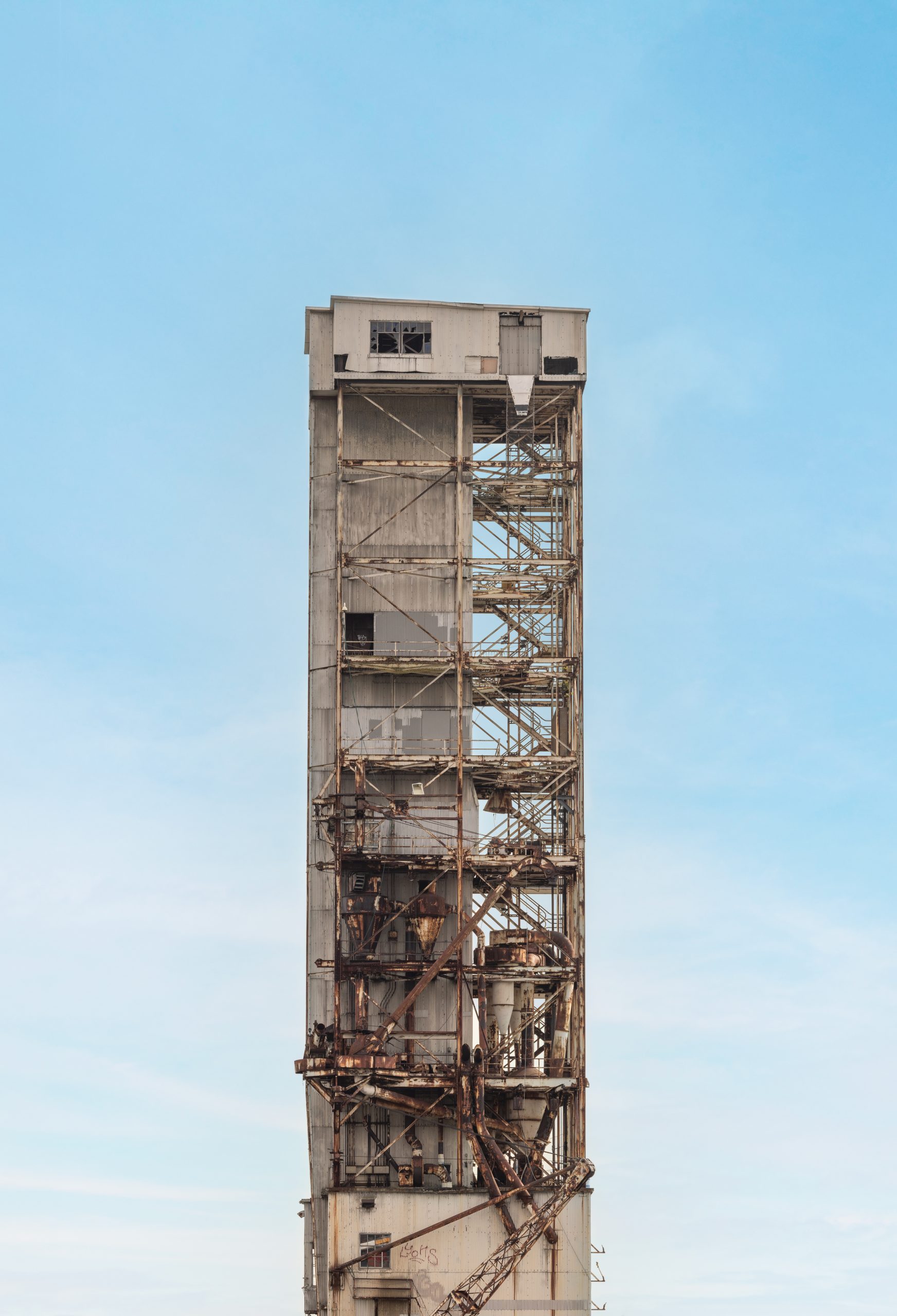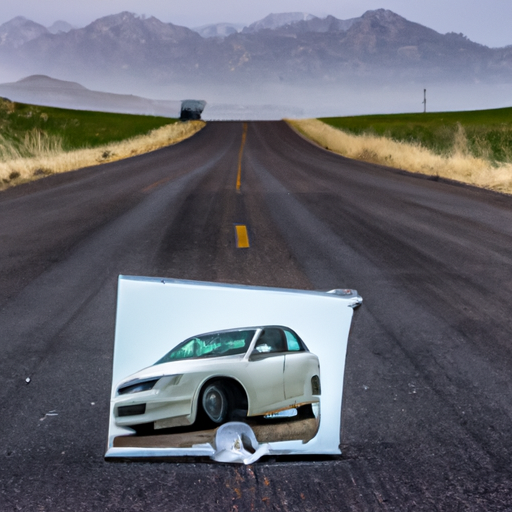If you’ve recently been involved in a truck accident in Pleasant View, Utah, you may be feeling overwhelmed and unsure of what steps to take next. That’s where a truck accident lawyer can come to your rescue. With their expertise in personal injury law, they can guide you through the legal process, ensuring that you receive the compensation you deserve. Whether you’re facing medical bills, lost wages, or emotional trauma, a skilled truck accident lawyer in Pleasant View, Utah can fight for your rights and provide you with the support you need during this difficult time. Don’t hesitate to reach out for a consultation – the sooner you contact a lawyer, the sooner they can start working on your case and helping you move forward.
What to do after a truck accident
Getting into a truck accident can be a frightening and overwhelming experience. However, it’s important to stay calm and take the necessary steps to ensure your safety and protect your rights. Here is a comprehensive guide on what to do after a truck accident:
1.1 Stay at the scene
The first thing you should do after a truck accident is to stay at the scene. Leaving the scene of an accident, especially if there are injuries or significant property damage, is illegal and can result in serious consequences. Stay put until the police arrive and give them all the necessary information about the accident.
1.2 Check for injuries
Your safety and the safety of others involved in the accident should be your top priority. Check yourself and others for any injuries and call for medical help if necessary. Even if you feel fine initially, it’s always a good idea to get checked out by a medical professional to rule out any hidden injuries.
1.3 Call the police
Calling the police is crucial after a truck accident. They will come to the scene, assess the situation, and create an official accident report. This report is an important piece of evidence in your case and can help determine liability.
1.4 Gather evidence
While you wait for the police to arrive, gather as much evidence as possible. Take photos of the accident scene, including any damage to your vehicle and the truck involved. Collect contact information from any witnesses and make notes of any important details about the accident.
1.5 Exchange information
Exchange insurance and contact information with the truck driver involved in the accident. This includes their name, phone number, address, driver’s license number, and insurance company. Additionally, gather information about the trucking company, such as its name, address, and insurance details.
1.6 Seek medical attention
Even if your injuries seem minor, it’s crucial to seek medical attention after a truck accident. Some injuries may not be immediately apparent, and a medical professional will be able to assess your condition and provide appropriate treatment. Your health and well-being should always be a priority.
1.7 Notify your insurance company
Contact your insurance company as soon as possible to report the accident. Provide them with all the necessary information and cooperate fully during the claims process. It’s important to remember that you should avoid giving any recorded statements to the insurance company without first consulting with a truck accident lawyer.
1.8 Consult with a truck accident lawyer
Finally, consult with a truck accident lawyer who can guide you through the legal process and protect your rights. A qualified lawyer will review your case, gather evidence, negotiate with insurance companies, and fight for the compensation you deserve.
Common causes of truck accidents
Truck accidents can happen for a variety of reasons. Understanding the common causes can help you determine liability and build a strong case. Here are some of the most common causes of truck accidents:
2.1 Driver fatigue
Driver fatigue is a major factor in many truck accidents. Truck drivers often work long hours and may not get enough rest, leading to drowsy driving. Fatigue can impair a driver’s judgment, reaction time, and ability to stay alert, increasing the risk of an accident.
2.2 Speeding
Speeding is another common cause of truck accidents. Trucks are much larger and heavier than passenger vehicles, and driving at high speeds can make it difficult to stop or maneuver the vehicle in time to avoid a collision.
2.3 Distracted driving
Distracted driving is a leading cause of all types of accidents, including truck accidents. Truck drivers may be distracted by cell phones, GPS devices, radios, or other objects, taking their attention away from the road and increasing the risk of a crash.
2.4 Drug or alcohol impairment
Driving under the influence of drugs or alcohol is extremely dangerous and can have devastating consequences. Truck drivers who operate their vehicles while impaired put themselves and others at risk of serious injury or death.
2.5 Inadequate training
Proper training is essential for truck drivers to operate their vehicles safely. Inadequate training can lead to improper handling of the truck, failure to follow safety protocols, and a higher risk of accidents.
2.6 Improper maintenance
Truck maintenance is crucial for safe operation. Failure to properly maintain a truck can result in equipment failure, such as brake or tire malfunctions, leading to accidents.
2.7 Overloaded or improperly loaded trucks
Overloading a truck or improperly securing its cargo can make it difficult to control the vehicle, increasing the risk of accidents. The weight distribution and stability of the cargo are important factors in truck safety.
2.8 Trucking company negligence
Trucking companies have a responsibility to ensure the safety of their drivers and vehicles. Negligence on the part of the trucking company, such as inadequate maintenance or failure to properly vet and train drivers, can contribute to accidents.
2.9 Faulty truck parts
Defective truck parts, such as brakes or steering components, can fail while the vehicle is in operation, leading to accidents. Manufacturers of these parts may be held liable for injuries caused by their defective products.
2.10 Poor road conditions
Poor road conditions, such as potholes or inadequate signage, can also contribute to truck accidents. Road maintenance authorities may be held liable for accidents caused by their failure to maintain safe roadways.

Liability in truck accidents
Determining liability in a truck accident can be complex, as multiple parties may share responsibility. Here are the common entities that can be held liable in truck accident cases:
3.1 Driver liability
The driver of the truck may be held liable if their negligence or recklessness caused the accident. This can include actions such as distracted driving, speeding, or driving under the influence.
3.2 Trucking company liability
Trucking companies can be held liable if their negligence contributed to the accident. This can include actions such as failing to properly maintain vehicles, inadequate driver training, or pressuring drivers to violate safety regulations.
3.3 Manufacturer liability
If a defective part or component of the truck caused the accident, the manufacturer of that part may be held liable for the injuries and damages. This can include faulty brakes, tires, or other defective components.
3.4 Government liability
Government entities can be held liable if their negligence contributed to the accident. This can include cases where poor road maintenance or inadequate signage played a role in the accident.
3.5 Shared liability
In some cases, multiple parties may share liability for a truck accident. For example, if both the driver and the trucking company were negligent, they may be held jointly responsible for the damages.
Compensation for truck accident injuries
If you’ve been injured in a truck accident that was caused by someone else’s negligence, you may be entitled to compensation for various types of damages. Here are some of the potential types of compensation you may be able to recover:
4.1 Medical expenses
Compensation for medical expenses can include the costs of hospital stays, surgeries, medication, rehabilitation, and any other necessary medical treatments. It’s important to keep detailed records of all medical expenses related to your truck accident injuries.
4.2 Lost wages
If your injuries prevent you from working, you may be entitled to compensation for lost wages. This includes both the wages you’ve already lost and any future wages you may be unable to earn due to your injuries.
4.3 Pain and suffering
Pain and suffering damages are awarded for the physical and emotional pain caused by the accident and your injuries. This can include both the immediate pain and any long-term effects, such as chronic pain or emotional trauma.
4.4 Emotional distress
Emotional distress damages are awarded for the psychological impact of the accident and your injuries. This can include feelings of fear, anxiety, depression, or post-traumatic stress disorder (PTSD) that result from the accident.
4.5 Disability or disfigurement
If the accident has resulted in a permanent disability or disfigurement, you may be entitled to compensation for the impact it has on your life. This can include modifications to your home, loss of enjoyment of life, and other related damages.
4.6 Loss of consortium
Loss of consortium damages are awarded to compensate the spouse or family members for the loss of companionship, support, and services of the injured party. This can include the impact on the marital relationship and the ability to engage in normal family activities.
Statute of limitations for truck accident claims in Utah
It’s important to be aware of the time limit for filing a truck accident claim, known as the statute of limitations. In Utah, the statute of limitations for truck accident claims is as follows:
5.1 General statute of limitations
The general statute of limitations for personal injury cases in Utah is four years from the date of the accident. This means you have four years from the date of the truck accident to file a lawsuit seeking compensation for your injuries.
5.2 Statute of limitations for government entities
If the truck accident involved a government entity, such as a city or state agency, the timeline for filing a claim may be shorter. In Utah, you generally have one year from the date of the accident to file a notice of claim against a government entity.
5.3 Tolling of the statute of limitations
In some situations, the statute of limitations may be tolled, or temporarily paused, allowing you to file a claim beyond the usual deadline. This can occur if the injured party is a minor, mentally incompetent, or if the defendant leaves the state.
Hiring a truck accident lawyer in Pleasant View Utah
Navigating the legal process after a truck accident can be complex, and having an experienced lawyer on your side is crucial. Here are some key factors to consider when hiring a truck accident lawyer in Pleasant View Utah:
6.1 Experience and expertise
Look for a lawyer who specializes in truck accident cases and has extensive experience handling similar cases. They should understand the specific laws and regulations that apply to truck accidents and have a track record of success.
6.2 Track record of success
Review the lawyer’s past case results to determine their success rate in obtaining favorable settlements or verdicts for their clients. A lawyer with a strong track record indicates their ability to effectively handle truck accident cases.
6.3 Resources and team
Ensure that the lawyer has the necessary resources and a skilled team to thoroughly investigate your case and gather evidence. This includes access to accident reconstruction experts, medical professionals, and other relevant experts who can strengthen your claim.
6.4 Communication and accessibility
Choose a lawyer who values open and clear communication. They should be responsive to your questions and keep you informed about the progress of your case. Accessibility and a strong attorney-client relationship are important for a successful outcome.
6.5 Contingency fee arrangement
Many truck accident lawyers work on a contingency fee basis, which means they only get paid if they successfully recover compensation for you. This arrangement allows you to pursue your claim without worrying about upfront legal fees.
6.6 Initial consultation
Schedule an initial consultation with a truck accident lawyer to discuss your case and evaluate your options. This meeting allows you to ask questions, gauge the lawyer’s communication style, and determine if they are the right fit for your needs.

Proving negligence in a truck accident case
To recover compensation in a truck accident case, you must establish negligence on the part of the responsible party. Here are the key elements involved in proving negligence:
7.1 Duty of care
The first step is establishing that the responsible party owed you a duty of care. In a truck accident case, this duty of care refers to the obligation to operate the truck safely and follow all traffic laws and regulations.
7.2 Breach of duty
You must then demonstrate that the responsible party breached their duty of care. This can be shown by proving that the party acted negligently or failed to exercise reasonable caution, leading to the accident.
7.3 Causation
You must establish a causal relationship between the responsible party’s breach of duty and the accident. This means showing that their actions or negligence directly caused or contributed to the accident and your injuries.
7.4 Damages
Lastly, you must demonstrate that you have suffered actual damages as a result of the accident. These damages can include physical injuries, emotional distress, medical expenses, lost wages, and other related losses.
Settlement vs. trial in truck accident cases
When pursuing a truck accident claim, there are two primary options for resolving the case: settlement or trial. Here are the pros and cons of each:
8.1 Pros and cons of settlements
Settlements can offer a quicker resolution to your case and may save you time, stress, and uncertainty. They also allow you to have more control over the outcome and negotiate for the compensation you believe is fair. However, settlements often result in lower compensation compared to what may be awarded in a trial.
8.2 Pros and cons of trials
Trials are conducted in front of a judge or jury, who will determine the outcome and the amount of compensation, if any. Trials can result in higher compensation, especially if negligence is clear and damages are significant. However, trials are time-consuming, can be expensive, and the outcome is uncertain.
8.3 Factors to consider
The decision between settlement and trial depends on the specific circumstances of your case. Factors to consider include the strength of the evidence, potential damages, the likelihood of success at trial, and your willingness to go through the trial process. Consulting with a truck accident lawyer can help you make an informed decision based on your unique situation.

Steps involved in a truck accident lawsuit
If your truck accident case proceeds to a lawsuit, there are several steps involved in the legal process. Here is an overview of the typical steps:
9.1 Investigation
Your lawyer will investigate the accident, gather evidence, and interview witnesses. They may work with accident reconstruction experts to determine the cause of the accident and establish liability.
9.2 Filing a lawsuit
If a settlement cannot be reached, your lawyer will file a lawsuit on your behalf. This involves drafting and filing the necessary legal documents with the court to initiate the formal legal proceedings.
9.3 Discovery
During the discovery phase, both parties exchange information and evidence relevant to the case. This can include written questions (interrogatories), document requests, and depositions of witnesses.
9.4 Negotiation and settlement discussions
Throughout the lawsuit process, there will be ongoing negotiations and settlement discussions between your lawyer and the opposing party. The goal is to reach a fair settlement that compensates you for your injuries and damages without the need for a trial.
9.5 Trial
If a settlement cannot be reached, the case will proceed to trial. During the trial, both sides present their evidence, call witnesses, and make arguments to the judge or jury. The judge or jury will then make a decision and determine the outcome of the case.
Frequently asked questions (FAQs)
Here are some frequently asked questions about truck accidents and their answers:
10.1 What should I do immediately after a truck accident?
After a truck accident, you should stay at the scene, check for injuries, call the police, gather evidence, exchange information with the truck driver, seek medical attention, notify your insurance company, and consult with a truck accident lawyer.
10.2 How can I prove the truck driver was at fault?
Proving fault in a truck accident requires gathering evidence, such as accident reports, witness statements, photos of the accident scene, and any available surveillance footage. An experienced truck accident lawyer can help build a strong case based on the evidence.
10.3 How long do I have to file a truck accident lawsuit in Utah?
In Utah, the general statute of limitations for personal injury cases, including truck accidents, is four years from the date of the accident. However, different deadlines may apply if the accident involved a government entity or if certain circumstances toll the statute of limitations.
10.4 Will my case go to trial?
Not all truck accident cases go to trial. Many are resolved through settlements between the parties involved. Whether your case goes to trial depends on various factors, such as the strength of the evidence, the parties’ willingness to negotiate, and the advice of your lawyer.
10.5 How much compensation can I expect to receive?
The amount of compensation you can expect to receive depends on the specific circumstances of your case, including the severity of your injuries, the impact on your life, and the available insurance coverage. Consulting with a truck accident lawyer will give you a better understanding of the potential compensation you may be entitled to.
Remember, the information provided in this article is for general informational purposes only and should not be considered legal advice. It’s always best to consult with a qualified truck accident lawyer to discuss the specific details of your case and get personalized advice.



